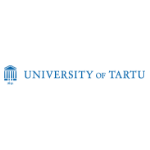COVID-19 Rapid Response Innovation Project
RNA detection made easy, fast and affordable to combat COVID-19
The Challenge
Coupled with the need to protect peoples’ lives is the need to create a pathway for countries to resume economic activity in the face of the COVID-19 emergency. One way to drive progress against these aims is to develop and deliver affordable, accurate and timely point-of-care diagnostics to undertake large-scale testing for COVID-19. Such tests would enable swift action to be taken to isolate those infected with the virus, while permitting the non-infectious people to return to work.
The solution
Using technology that simplifies RNA detection, the team behind SDx SARS-CoV-2 have created a test for the RNA in the virus that causes COVID-19. The SDx SARS-CoV-2 RNA test makes “gold-standard” testing for COVID-19 more accessible because it can be undertaken on-site, results are available in less than 30 minutes, and it is affordable. The test is able to detect the RNA of the SARS-CoV-2 virus before antibodies and symptoms occur, and is simple enough to be undertaken by untrained professionals. After some additional development, it will be suitable for integration into a self-testing home-use device.
Impact
This test has the potential to save medical resources and save lives by reaching much larger populations. Coupled with serological tests to detect SARS-CoV-2 specific antibodies, it could be leveraged by health authorities to develop more effective strategies to safely minimise economic disruption.
All Partners
EIT Health member
University of Tartu
External partner
Selfdiagnostics Deutschland GmbH
Members

CLC/InnoStars: Scandinavia
Partner classification: Education, Research
Partner type: Core Partner
The University of Tartu (UT) is the oldest and largest university in Estonia and is one of the leading education institutions teaching medical and health sciences. The UT is a core partner of EIT Health in the Scandinavian co-location centre and actively collaborates with its linked third party, Tartu University Hospital, and Tartu Biotechnology Park, the Regional Innovation Scheme hub of EIT Health in Estonia. The UT has a portfolio of successful spin-offs in medtech, biotech, pharma etc., and is involved in several business incubators and student training networks. Tartu University Hospital is the largest teaching hospital in Estonia and a strong partner in research and education, providing direct access to clinical trials and patient feedback. The Estonian Biobank owned and curated by the UT is a population-based biobank, consisting of samples and rich eHealth data (from national registers) of over 200,000 gene donors. The Institute of Genomics has a strong competence in genomics, metabolomics, etc. The expertise of the UT Faculty of Medicine includes R&D competencies in innovative anticancer drug candidates, point-of-care diagnostics of infectious diseases, also nutritional and behavioural sciences. Estonia has many encrypted digital population-wide data repositories incorporated into government functions that link the nation’s various databases through end-to-end encrypted pathways (incl. digital medical records, e-prescriptions), opening up piloting opportunities for innovative healthcare solutions and new business models. The University of Tartu is in the lead of developing the Estonian healthcare system by offering its residents genome-wide genotyping that will be translated into personalised reports for use in everyday medical practice through the national e-health portal. The UT’s ambition is to develop and scale up personalised medicine and healthcare solutions in cooperation with EIT Health, national and local governments, startups and companies. The UT is interested in offering its unique competencies in personalised medicine and e-health, population-wide data repositories, using Estonia as a test site for innovative solutions, access to graduate students, acting medical professionals and patients (in Tartu University Hospital) and cooperation with the National Health Board, Health Insurance Fund and other stakeholders.
Key Activities in Corporate Innovation
Medtech, Pharma, Diagnostics, Consumer products, Nutrition, Personalised medicine
Key Activities in Social Innovation
Healthcare provision
Key Activities in Business Creation
Incubation, Technology transfer, Testing & Validation
Key Activities in Education
Entrepreneurship training, Medical faculties, Healthcare professional education/training
